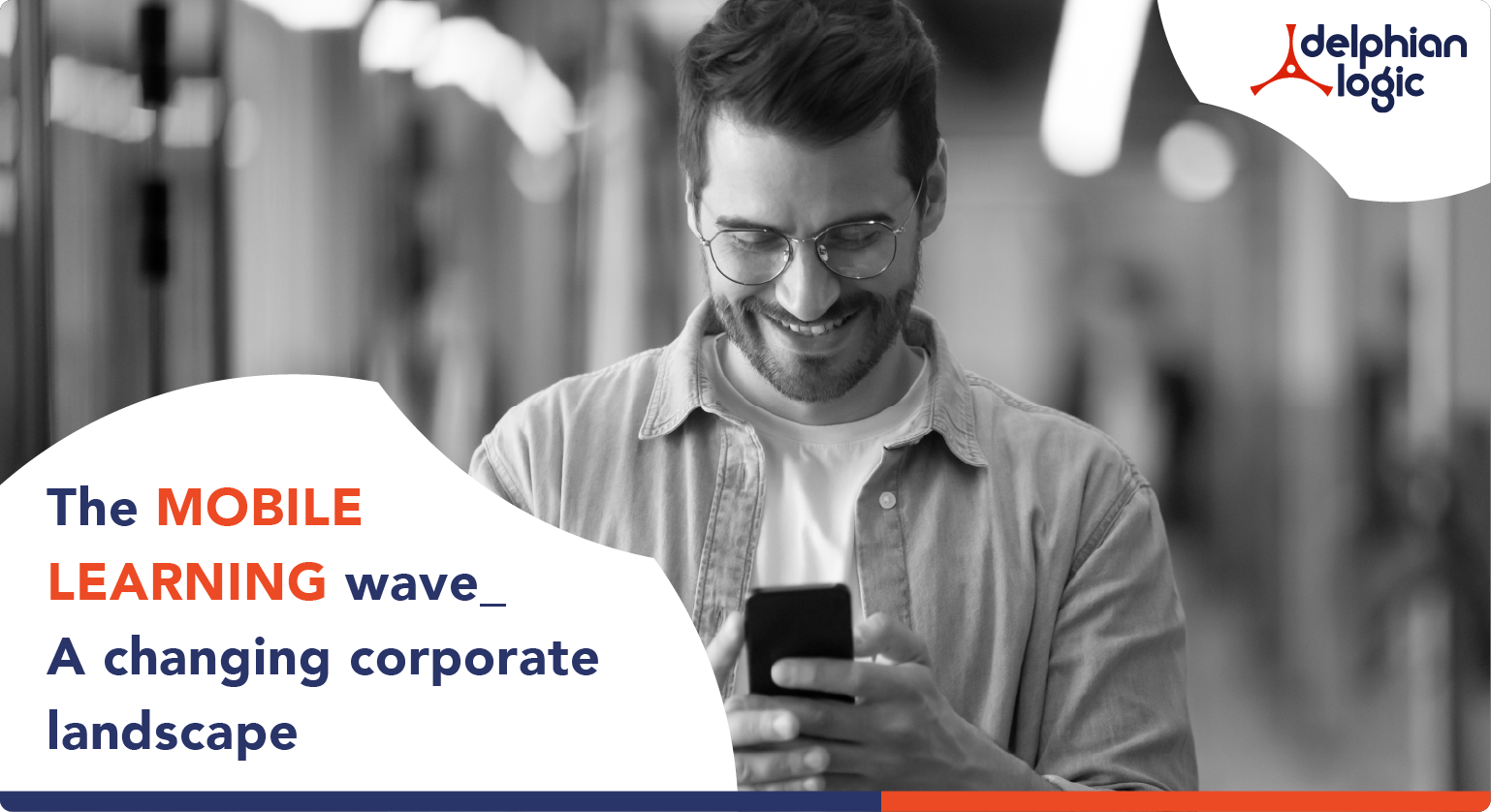April 25, 2019
The Mobile Learning wave: A changing corporate landscape

The concept of employee Learning has undergone a major overhaul in recent years. Flexibility, versatility, functionality, and other like adjectives now paint the picture of a new, smarter kind of learning. The changing scenario is a result of mobile phones being augmented with internet connectivity.
Mobile learning, or m-learning, is causing major shifts in existing industry trends. Norms are being replaced, as the linear classroom learning styles have all but become dated. This is further fueled by the fact that the current workforce generation largely comprises of digital natives. A large number of organizations are, therefore–in order to stay on top of changing trends, as well as engage the attention span of employees–harnessing the versatility of mobile learning.
Here are 5 major ways in which mobile integrations are revolutionizing the learning landscape in virtually all industries:
- Learning mobilized
Perhaps the greatest utility of mobile/smartphones–one that has revolutionized the field of communication–is portability. And it is the same quality of experience that is, as a consequence, extended to mobile learning. Learners are afforded high flexibility when it comes to information consumption; meaning that the content can be accessed anywhere, and at anytime. This not only enhances the ease of access, but also boosts the functional applicability of learning.
- Increased fulfilment
Mobile learning incorporates various dynamic learning delivery platforms, such as videos, interactive infographics, audio, podcasts, and others. This ensures that learners have the freedom to utilize the form of consumption that they are most familiar with. The concepts as well as mechanics of Gamification can also be easily applied to mobile learning, by means of interactive apps. The above factors are highly suited to the needs of the current generation of workforce, and they ensure that learning is consumed more as an experience than a task. This ultimately leads to increasing number of employees actually completing entire training modules.
-
Outside the box
The versatility of mobile learning has given an agile boost to the traditional ‘classroom’ paradigm, as well as the linear learning content that is part of it. This is owing to both the portability, as well as platform versatility offered by mobile phones; which takes learning in a more fragmented (modular) direction. Mobile learning has given great impetus to the concept of microlearning, thus making the entire process of information consumption simpler. Employees are able to consume learning content at their own pace, and in the form of individual step-like modules. All of this points towards innovation in learning opening up various avenues that were, as of a decade ago, was not even imaginable.
- Enabled sales
The flexibility that mobile learning, as a concept, brings a lot of flexibility into the sales training, as well as sales enablement scenarios. This is because mobile learning extends an element of dynamism into the learning, which is extremely beneficial to sales executives in both an office scenario (as training), and also in field engagement scenarios (as quick pointers).
- Personal experience
Mobile learning affords employees the opportunity to experience learning on a very individual level. The freedom of time and place are in themselves, a major step forward from traditional learning scenarios. This is further augmented by the recent BYOD (Bring Your Own Device) trend that hit corporate organizations in recent years. This trend is seeing employees bring their own smartphones, PC’s, tablets, etc for official use in the workplace. Applied to learning, this trend ushers in a strong sentiment of ownership among employees, thus motivating them to do proper justice to the content. Although there have been concerns regarding the security factor of employees using their personal devices for work, many companies have acknowledged the immense cost-benefits of this practice.
- Blurred lines
Mobile learning is changing the way in which employees interact with learning in the workplace. The features of portability–and the flexible usage that they afford–are making it easier for employees to find a comfortable time balance between work, and learning. The granular, easy-to-access mobile learning modules allow learners to carry out their everyday work, while also staying on top of their learning material.



